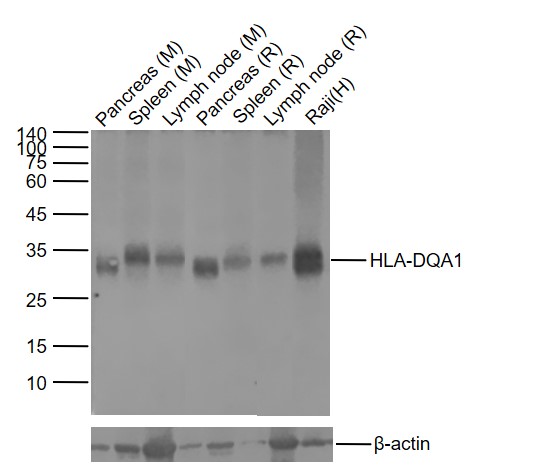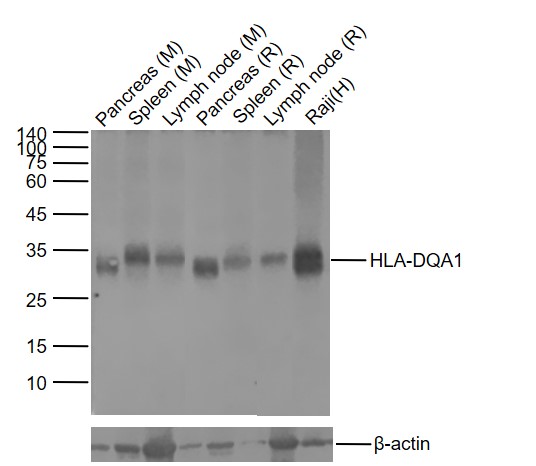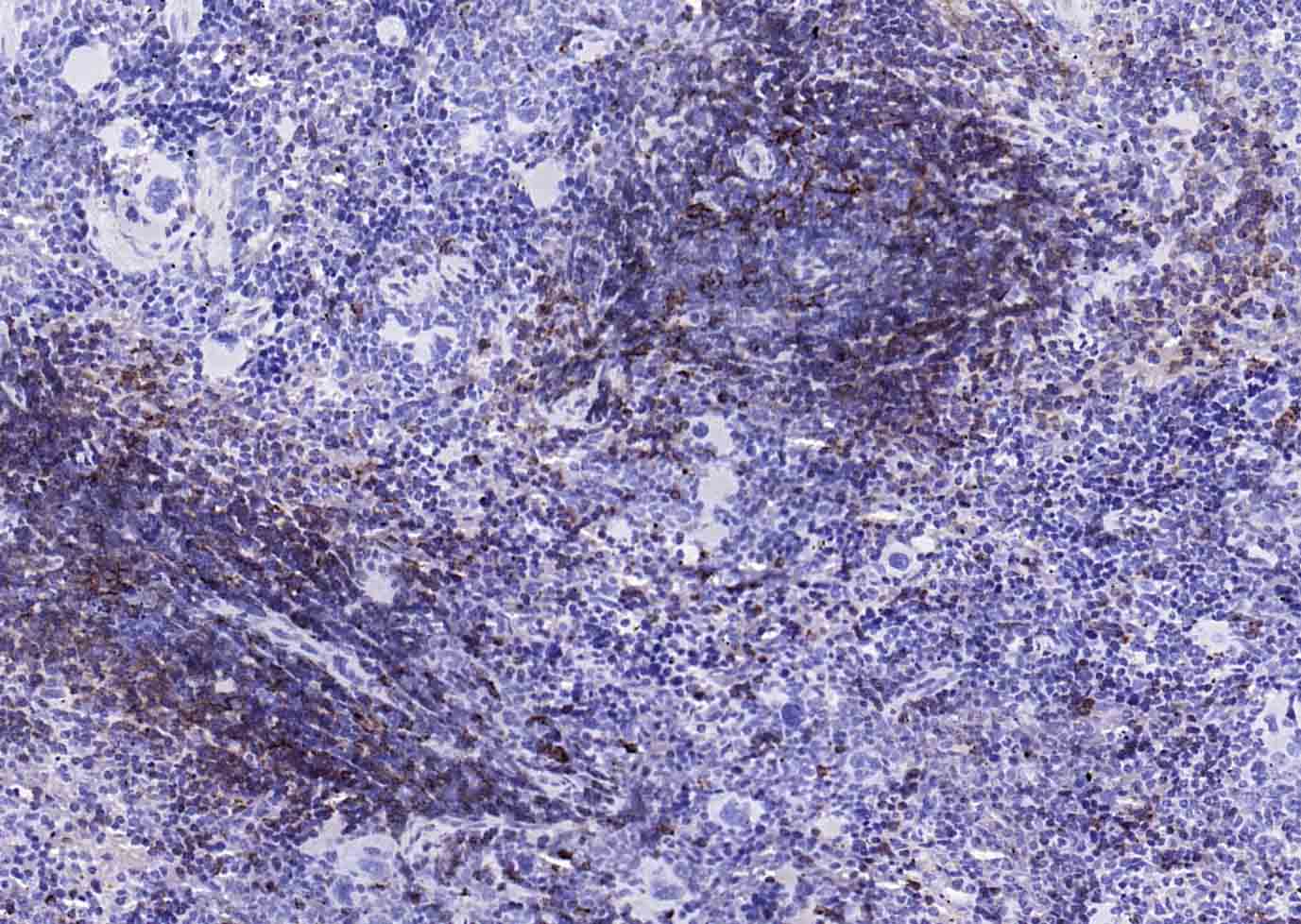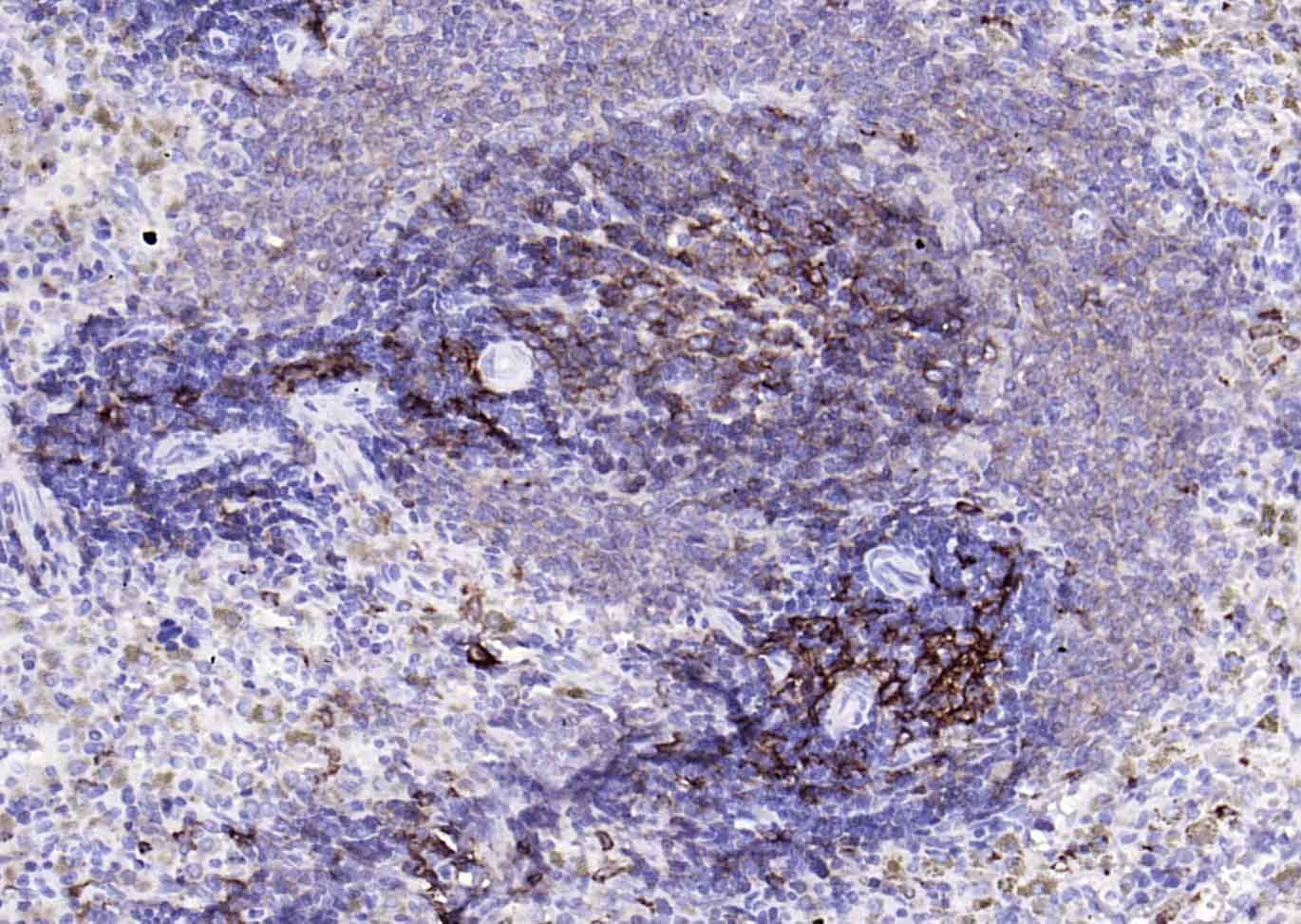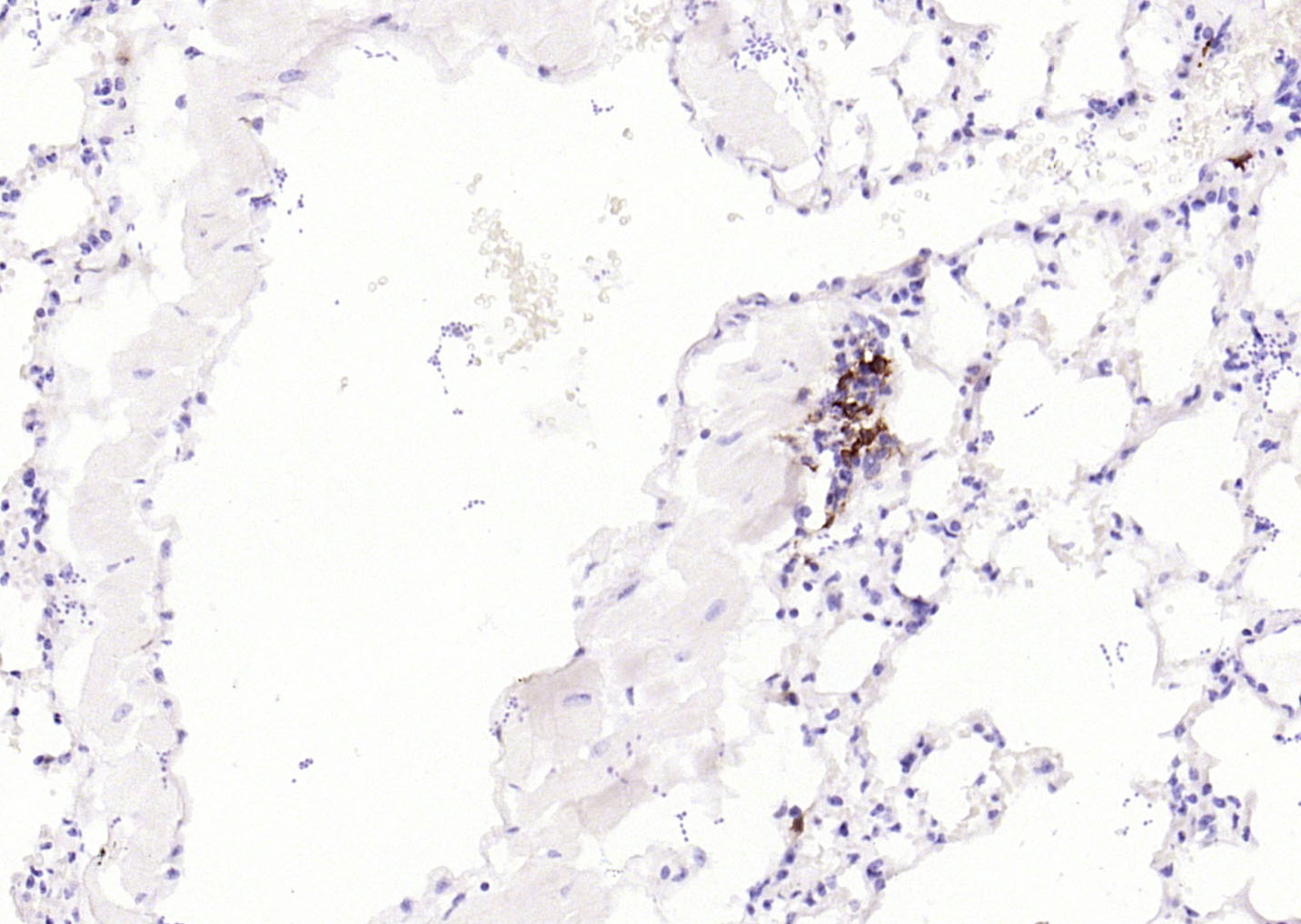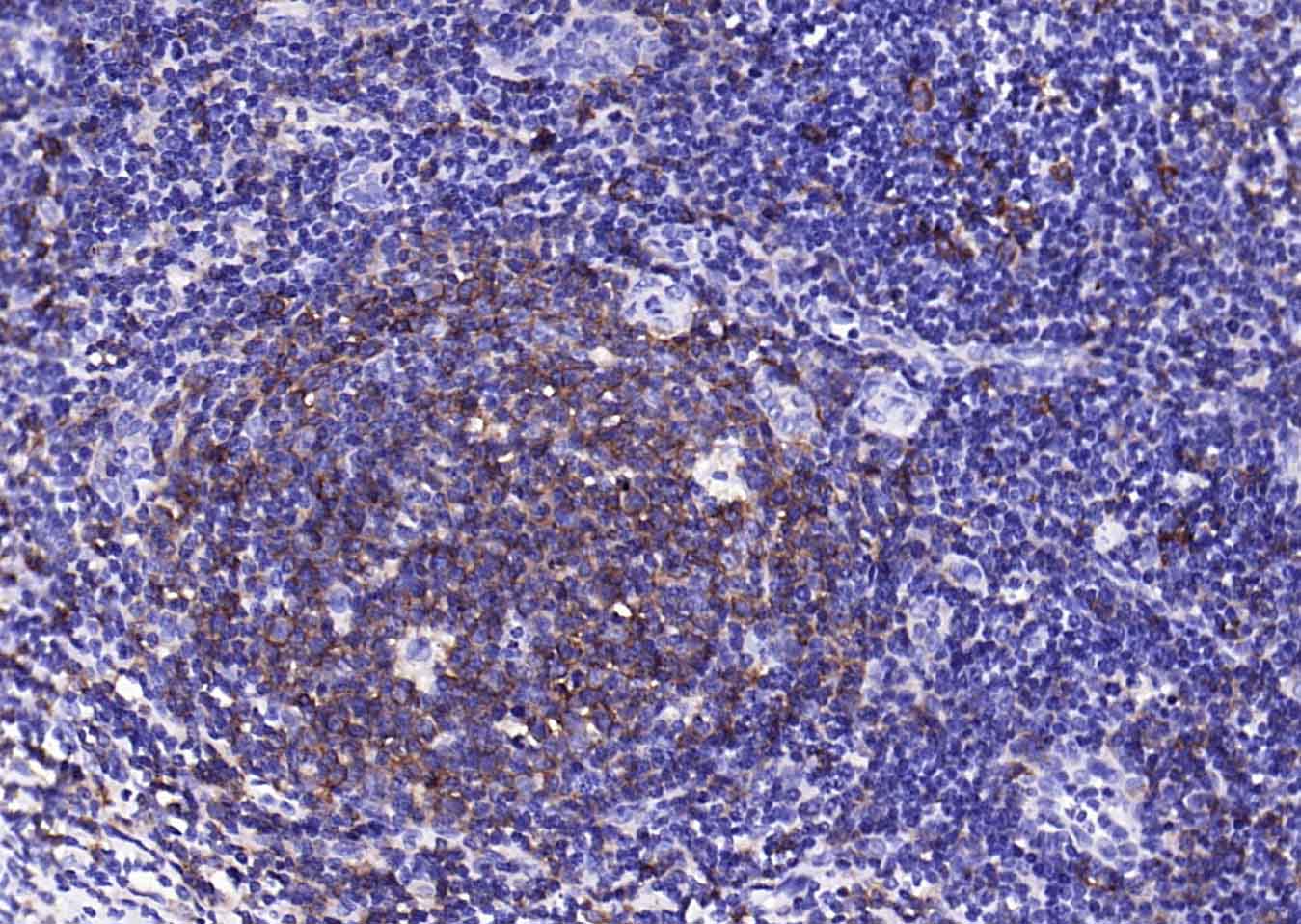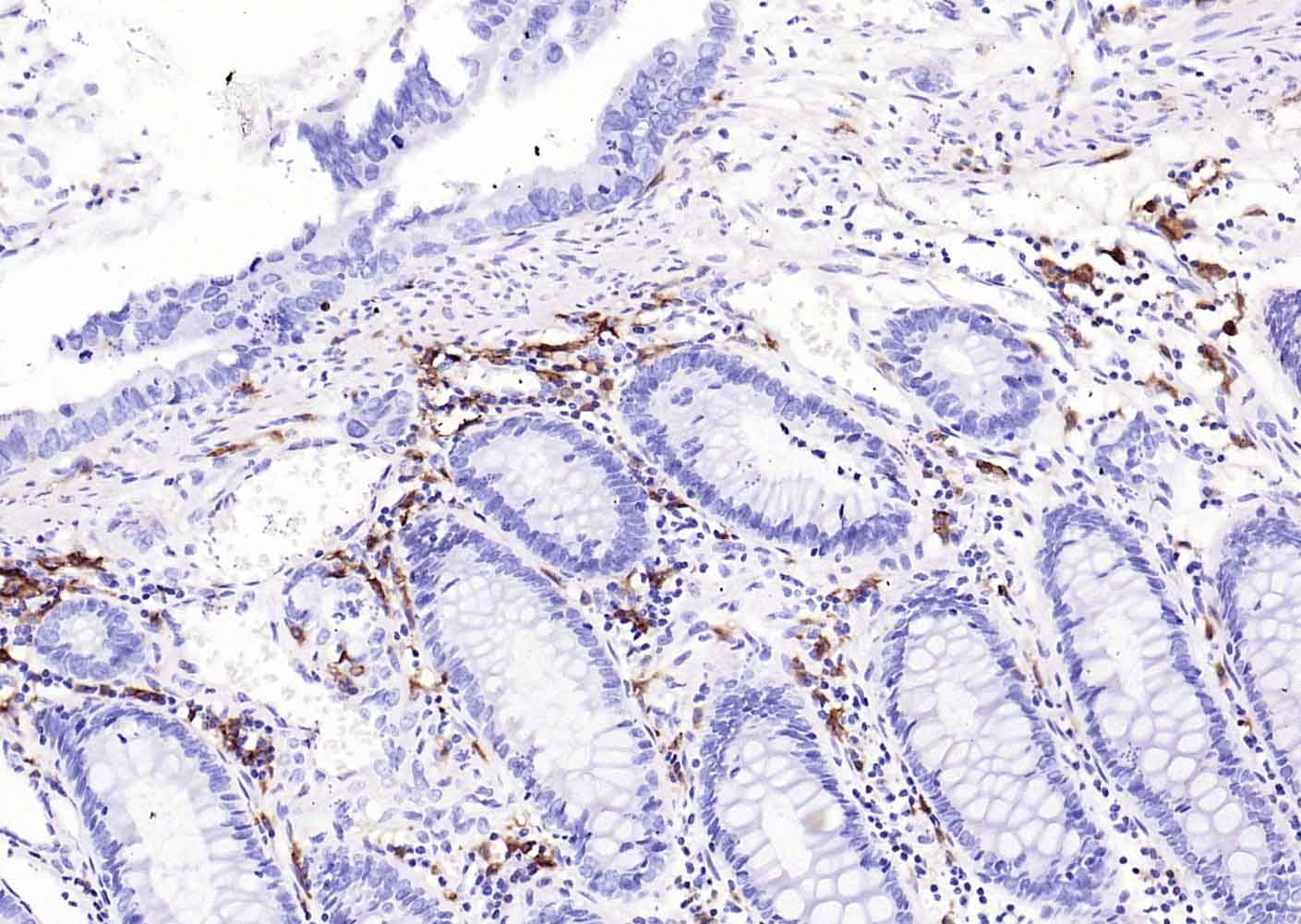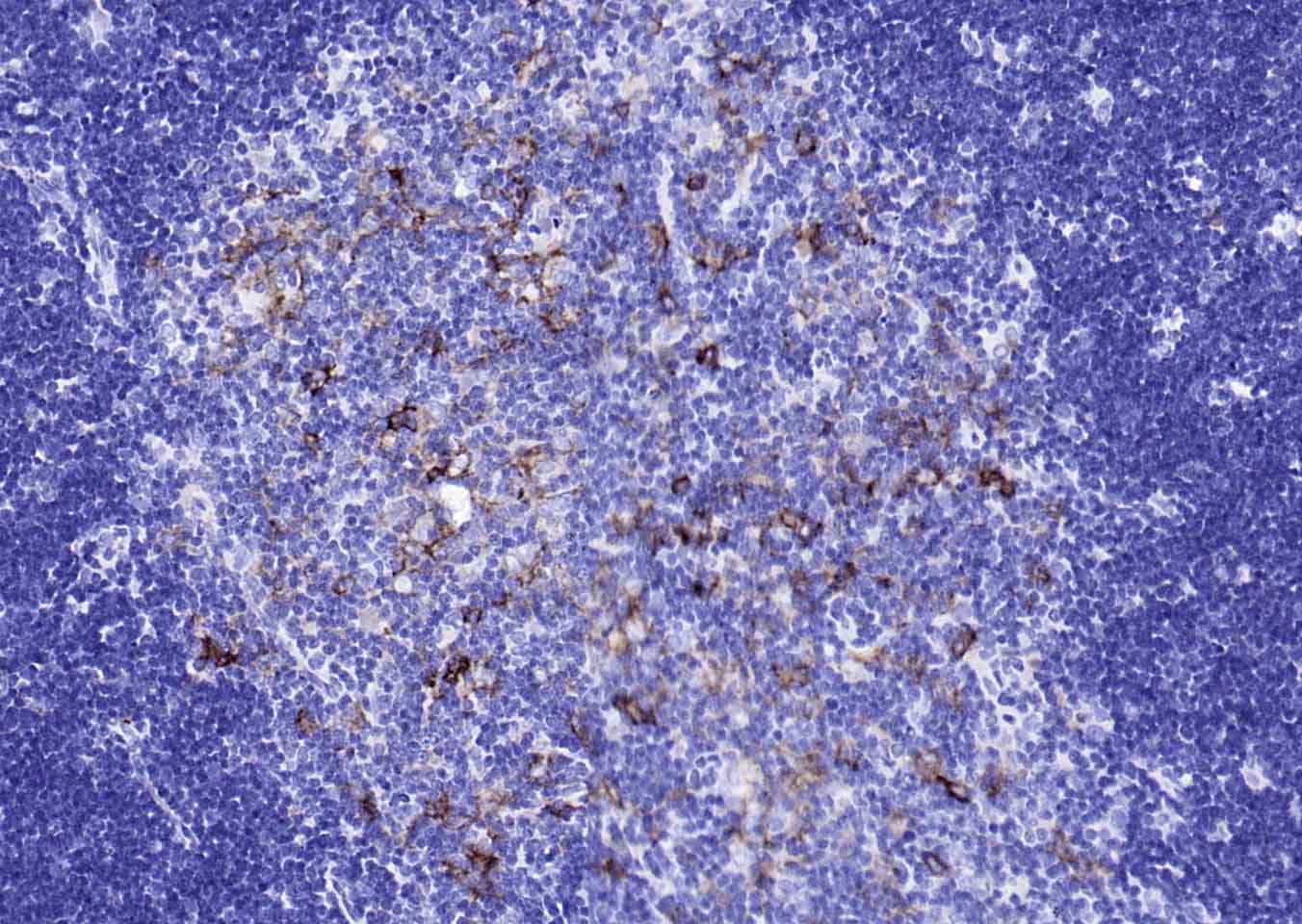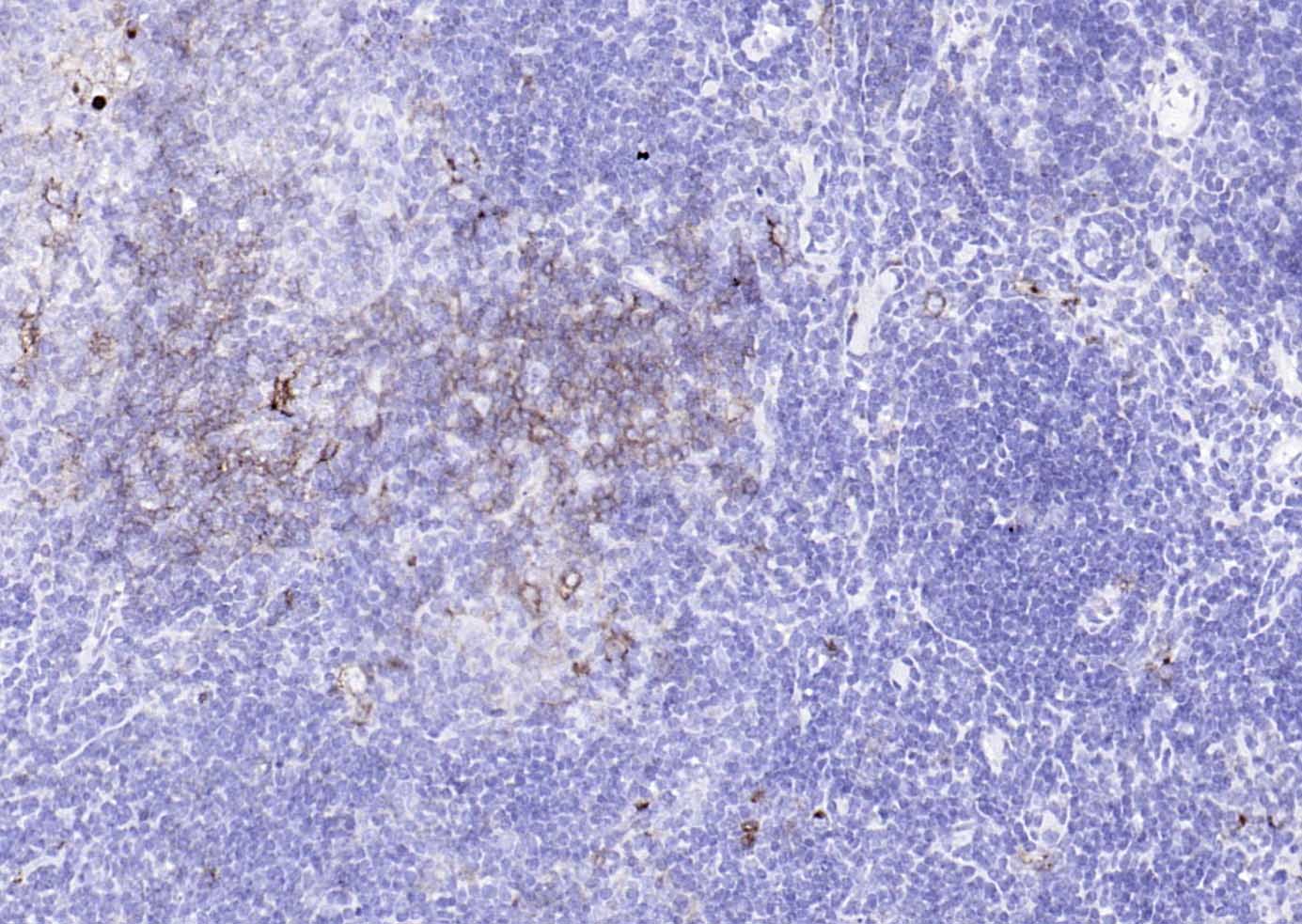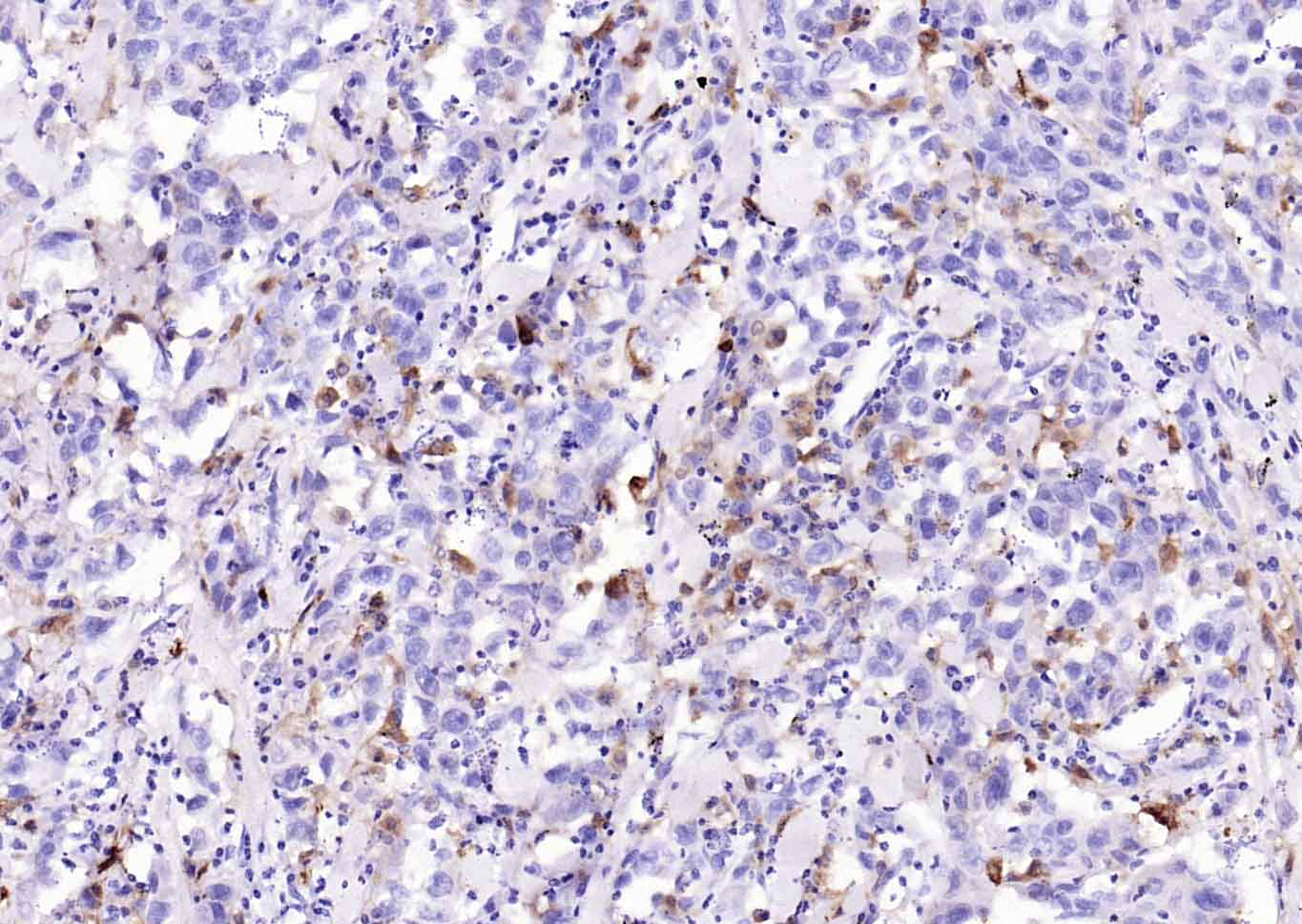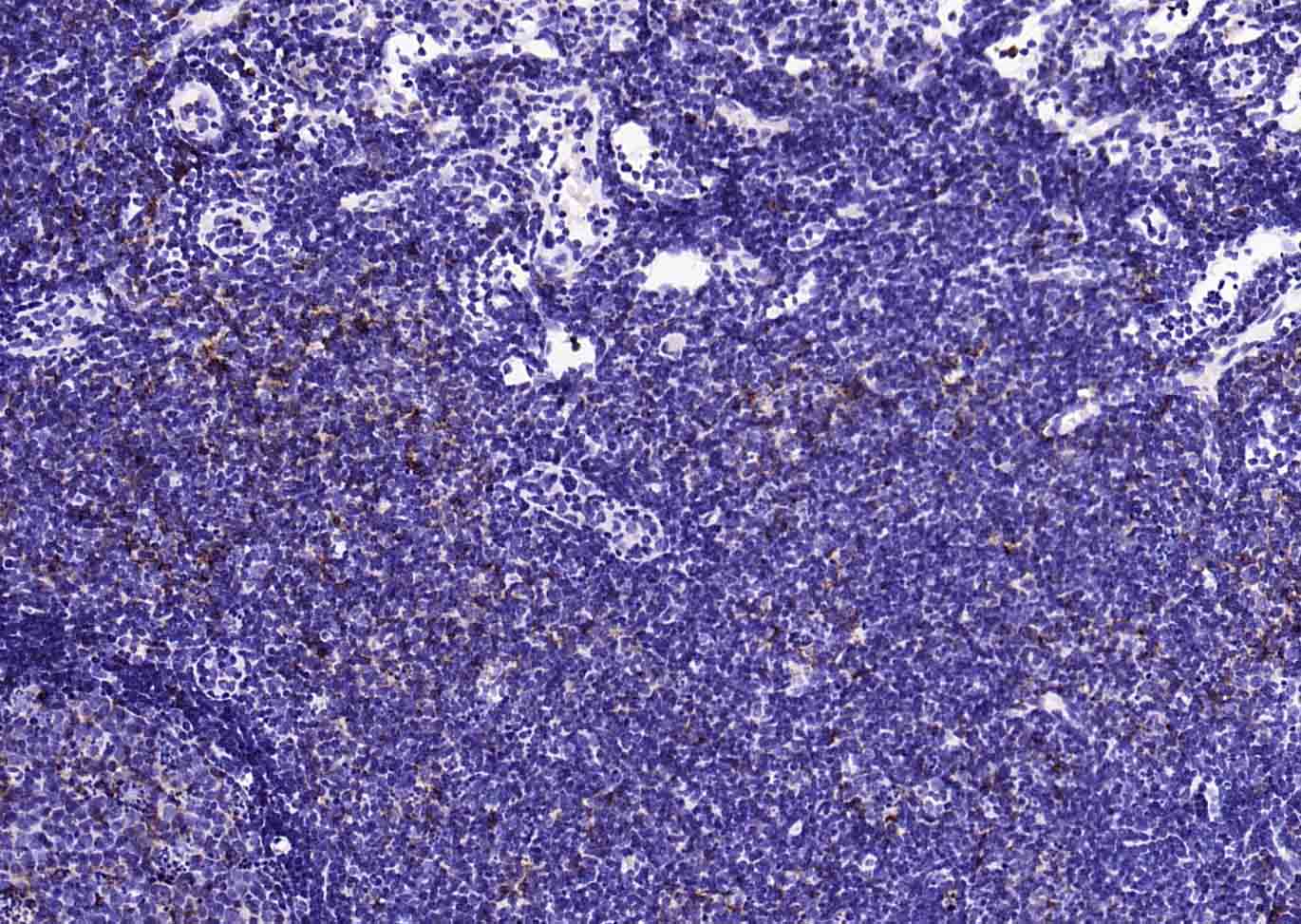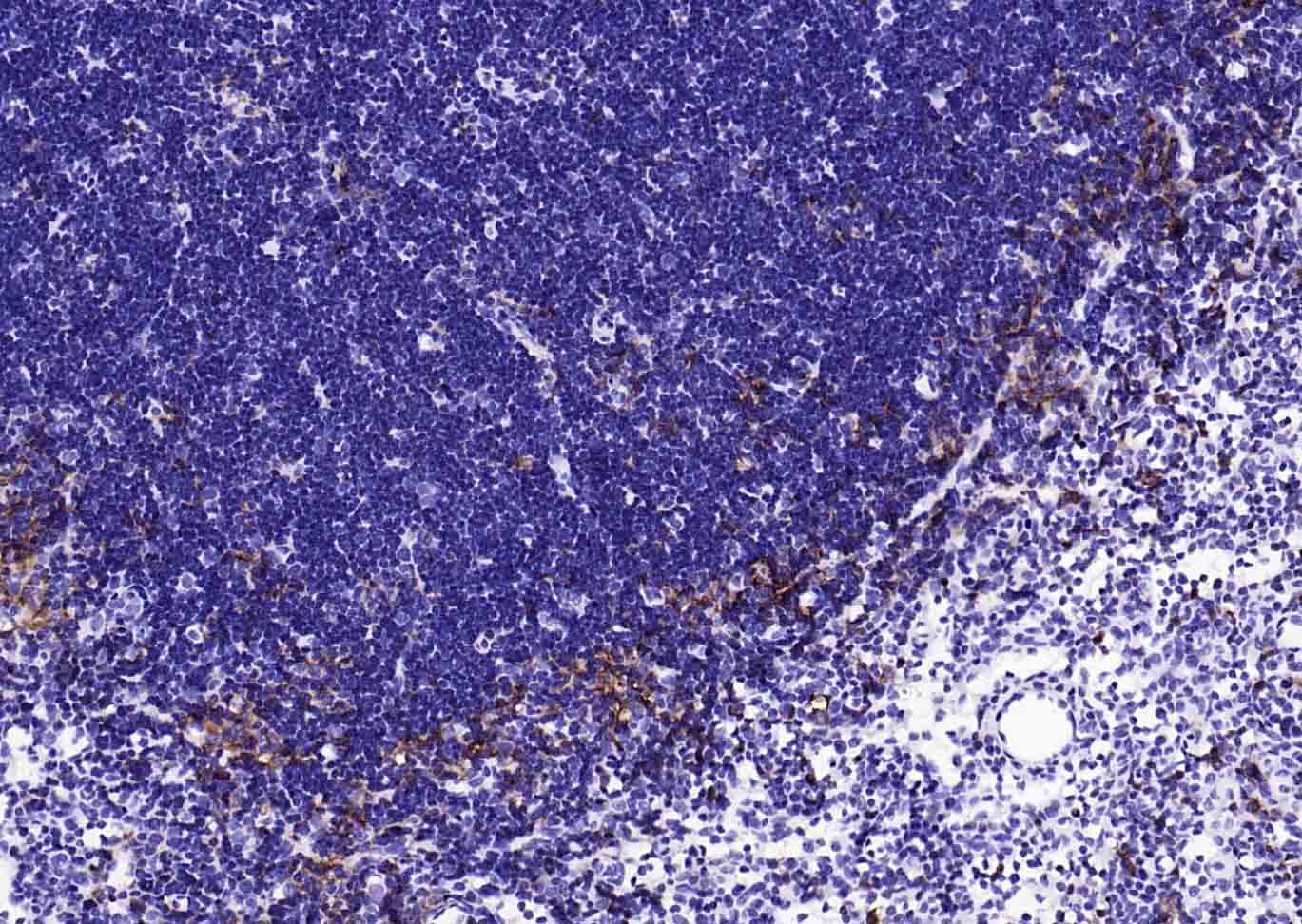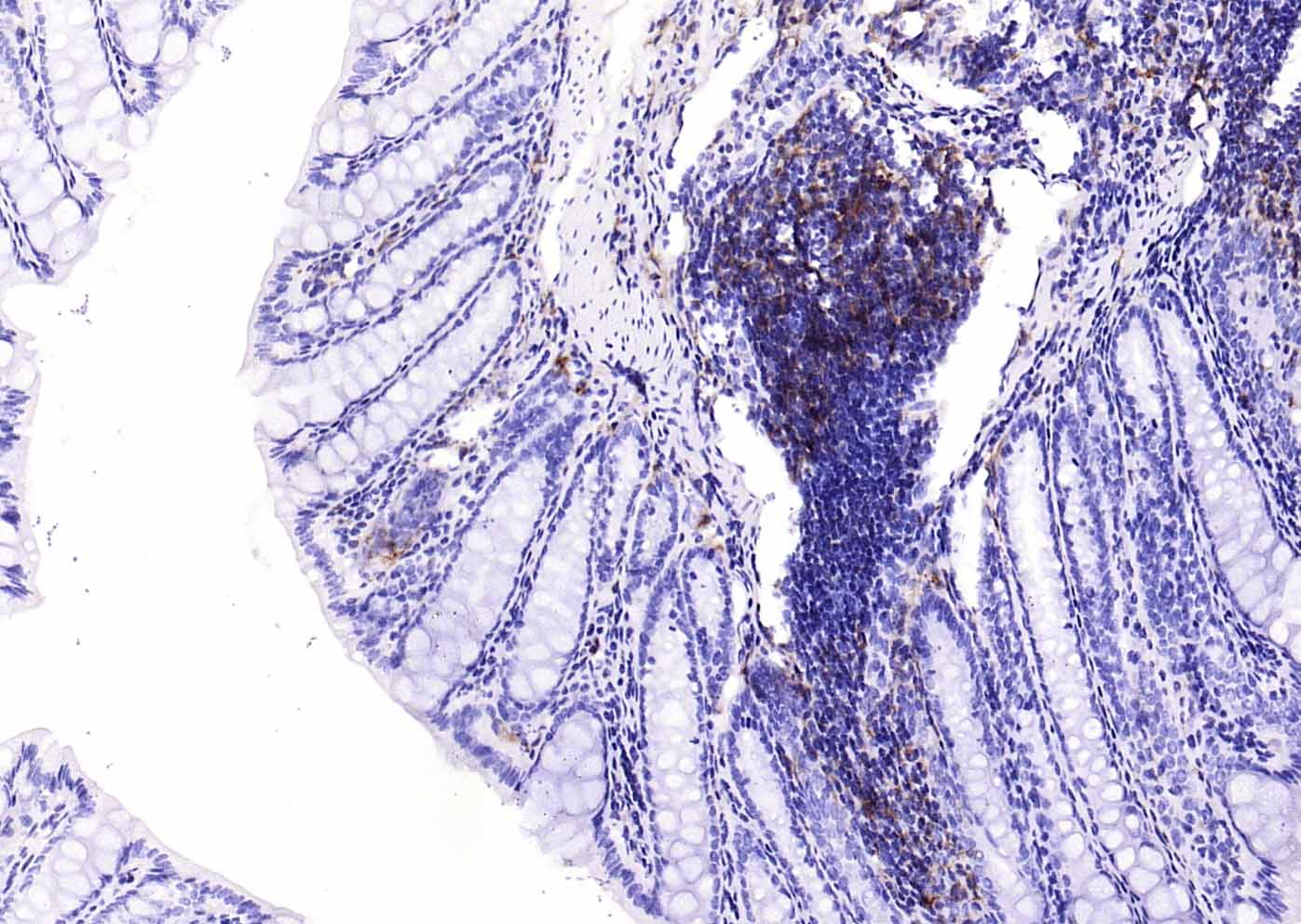| 產(chǎn)品編號 | bsm-54201R |
| 英文名稱 | Rabbit Anti-HLA-DQA1 antibody |
| 中文名稱 | 組織相容性抗原DQA1重組兔單抗 |
| 別 名 | CD; CELIAC1; DC 1 alpha chain; DC alpha; DC-1 alpha chain; DC-alpha; DC1, included; DQ alpha 1 chain; DQ-A1; DQ-DRW9 alpha chain; DQA1_HUMAN; FLJ27088; FLJ27328; Gluten-sensitive enteropathy (celiac disease); GSE; HLA class II histocompatibility antigen; HLA class II histocompatibility antigen, DQ alpha 1 chain; HLA class II histocompatibility antigen, DQ(W3) alpha chain; HLA-DCA; HLA-DQA; HLA-DQA1; HLA-DQA1 major histocompatibility complex, class II, DQ alpha 1; HLADC histocompatibility type; Immune response antigens HIa, included; leucocyte antigen DQA1; leukocyte antigen alpha chain; Major histocompatibility complex, class II, DQ alpha 1; MGC149527; MHC class II antigen; MHC class II DQA1; MHC class II HLA-D alpha glycoprotein; MHC class II HLA-DQ alpha 1; MHC class II surface glycoprotein; MHC HLA-DQ alpha; OTTHUMP00000029141; OTTHUMP00000176885; OTTHUMP00000178551; OTTHUMP00000178552; OTTHUMP00000233817. |
| 研究領(lǐng)域 | 細胞生物 免疫學(xué) 轉(zhuǎn)運蛋白 |
| 抗體來源 | Rabbit |
| 克隆類型 | Recombinant |
| 克 隆 號 | 8C1 |
| 交叉反應(yīng) | Human,Mouse,Rat |
| 產(chǎn)品應(yīng)用 | WB=1:500-2000, IHC-P=1:50-200, IHC-F=1:50-200, IF=1:50-200 not yet tested in other applications. optimal dilutions/concentrations should be determined by the end user. |
| 理論分子量 | 26kDa |
| 細胞定位 | 細胞膜 |
| 性 狀 | Liquid |
| 濃 度 | 1mg/ml |
| 免 疫 原 | KLH conjugated synthetic peptide derived from human HLA-DQA1 |
| 亞 型 | IgG |
| 純化方法 | affinity purified by Protein A |
| 緩 沖 液 | 0.01M TBS(pH7.4) with 1% BSA, 0.03% Proclin300 and 50% Glycerol. |
| 保存條件 | Shipped at 4℃. Store at -20 °C for one year. Avoid repeated freeze/thaw cycles. |
| 注意事項 | This product as supplied is intended for research use only, not for use in human, therapeutic or diagnostic applications. |
| PubMed | PubMed |
| 產(chǎn)品介紹 | Binds peptides derived from antigens that access the endocytic route of antigen presenting cells (APC) and presents them on the cell surface for recognition by the CD4 T-cells. The peptide binding cleft accomodates peptides of 10-30 residues. The peptides presented by MHC class II molecules are generated mostly by degradation of proteins that access the endocytic route, where they are processed by lysosomal proteases and other hydrolases. Exogenous antigens that have been endocytosed by the APC are thus readily available for presentation via MHC II molecules, and for this reason this antigen presentation pathway is usually referred to as exogenous. As membrane proteins on their way to degradation in lysosomes as part of their normal turn-over are also contained in the endosomal/lysosomal compartments, exogenous antigens must compete with those derived from endogenous components. Autophagy is also a source of endogenous peptides, autophagosomes constitutively fuse with MHC class II loading compartments. In addition to APCs, other cells of the gastrointestinal tract, such as epithelial cells, express MHC class II molecules and CD74 and act as APCs, which is an unusual trait of the GI tract. To produce a MHC class II molecule that presents an antigen, three MHC class II molecules (heterodimers of an alpha and a beta chain) associate with a CD74 trimer in the ER to form an heterononamer. Soon after the entry of this complex into the endosomal/lysosomal system where antigen processing occurs, CD74 undergoes a sequential degradation by various proteases, including CTSS and CTSL, leaving a small fragment termed CLIP (class-II-associated invariant chain peptide). The removal of CLIP is facilitated by HLA-DM via direct binding to the alpha-beta-CLIP complex so that CLIP is released. HLA-DM stabilizes MHC class II molecules until primary high affinity antigenic peptides are bound. The MHC II molecule bound to a peptide is then transported to the cell membrane surface. In B cells, the interaction between HLA-DM and MHC class II molecules is regulated by HLA-DO. Primary dendritic cells (DCs) also to express HLA-DO. Lysosomal miroenvironment has been implicated in the regulation of antigen loading into MHC II molecules, increased acidification produces increased proteolysis and efficient peptide loading. Subcellular Location: Cell membrane. Endoplasmic reticulum membrane. Golgi apparatus > trans-Golgi network membrane. Endosome membrane. Lysosome membrane. The MHC class II complex transits through a number of intracellular compartments in the endocytic pathway until it reaches the cell membrane for antigen presentation. Similarity: Belongs to the MHC class II family. Contains 1 Ig-like C1-type (immunoglobulin-like) domain. SWISS: P01909 Gene ID: 3117 Database links: Entrez Gene: 100133678 Human Entrez Gene: 100507686 Human Entrez Gene: 100509457 Human Entrez Gene: 3117 Human Omim: 146880 Human SwissProt: P01909 Human Unigene: 387679 Human Unigene: 591798 Human Unigene: 706240 Human |
| 產(chǎn)品圖片 | Sample: Lane 1: Mouse Pancreas lysates Lane 2: Mouse Spleen lysates Lane 3: Mouse Lymph node lysates Lane 4: Rat Pancreas lysates Lane 5: Rat Spleen lysates Lane 6: Rat Lymph node lysates Lane 7: Human Raji Cell Lysates Primary: Anti- HLA-DQA1 (bsm-54201R) at 1/1000 dilution Secondary: IRDye800CW Goat Anti-Rabbit IgG at 1/20000 dilution Predicted band size: 26 kDa Observed band size: 30 kDa Paraformaldehyde-fixed, paraffin embedded (mouse spleen); Antigen retrieval by boiling in sodium citrate buffer (pH6.0) for 15min; Block endogenous peroxidase by 3% hydrogen peroxide for 20 minutes; Blocking buffer (normal goat serum) at 37°C for 30min; Antibody incubation with (HLA-DQA1) Monoclonal Antibody, Unconjugated (bsm-54201R) at 1:200 overnight at 4°C, followed by operating according to SP Kit(Rabbit) (sp-0023) instructionsand DAB staining. Paraformaldehyde-fixed, paraffin embedded (rat spleen); Antigen retrieval by boiling in sodium citrate buffer (pH6.0) for 15min; Block endogenous peroxidase by 3% hydrogen peroxide for 20 minutes; Blocking buffer (normal goat serum) at 37°C for 30min; Antibody incubation with (HLA-DQA1) Monoclonal Antibody, Unconjugated (bsm-54201R) at 1:200 overnight at 4°C, followed by operating according to SP Kit(Rabbit) (sp-0023) instructionsand DAB staining. Paraformaldehyde-fixed, paraffin embedded (mouse lung); Antigen retrieval by boiling in sodium citrate buffer (pH6.0) for 15min; Block endogenous peroxidase by 3% hydrogen peroxide for 20 minutes; Blocking buffer (normal goat serum) at 37°C for 30min; Antibody incubation with (HLA-DQA1) Monoclonal Antibody, Unconjugated (bsm-54201R) at 1:200 overnight at 4°C, followed by operating according to SP Kit(Rabbit) (sp-0023) instructionsand DAB staining. Paraformaldehyde-fixed, paraffin embedded (human tonsil); Antigen retrieval by boiling in sodium citrate buffer (pH6.0) for 15min; Block endogenous peroxidase by 3% hydrogen peroxide for 20 minutes; Blocking buffer (normal goat serum) at 37°C for 30min; Antibody incubation with (HLA-DQA1) Monoclonal Antibody, Unconjugated (bsm-54201R) at 1:200 overnight at 4°C, followed by operating according to SP Kit(Rabbit) (sp-0023) instructionsand DAB staining. Paraformaldehyde-fixed, paraffin embedded (human colon carcinoma); Antigen retrieval by boiling in sodium citrate buffer (pH6.0) for 15min; Block endogenous peroxidase by 3% hydrogen peroxide for 20 minutes; Blocking buffer (normal goat serum) at 37°C for 30min; Antibody incubation with (HLA-DQA1) Monoclonal Antibody, Unconjugated (bsm-54201R) at 1:200 overnight at 4°C, followed by operating according to SP Kit(Rabbit) (sp-0023) instructionsand DAB staining. Paraformaldehyde-fixed, paraffin embedded (rat thymus); Antigen retrieval by boiling in sodium citrate buffer (pH6.0) for 15min; Block endogenous peroxidase by 3% hydrogen peroxide for 20 minutes; Blocking buffer (normal goat serum) at 37°C for 30min; Antibody incubation with (HLA-DQA1) Monoclonal Antibody, Unconjugated (bsm-54201R) at 1:200 overnight at 4°C, followed by operating according to SP Kit(Rabbit) (sp-0023) instructionsand DAB staining. Paraformaldehyde-fixed, paraffin embedded (mouse thymus); Antigen retrieval by boiling in sodium citrate buffer (pH6.0) for 15min; Block endogenous peroxidase by 3% hydrogen peroxide for 20 minutes; Blocking buffer (normal goat serum) at 37°C for 30min; Antibody incubation with (HLA-DQA1) Monoclonal Antibody, Unconjugated (bsm-54201R) at 1:200 overnight at 4°C, followed by operating according to SP Kit(Rabbit) (sp-0023) instructionsand DAB staining. Paraformaldehyde-fixed, paraffin embedded (human lung carcinoma); Antigen retrieval by boiling in sodium citrate buffer (pH6.0) for 15min; Block endogenous peroxidase by 3% hydrogen peroxide for 20 minutes; Blocking buffer (normal goat serum) at 37°C for 30min; Antibody incubation with (HLA-DQA1) Monoclonal Antibody, Unconjugated (bsm-54201R) at 1:200 overnight at 4°C, followed by operating according to SP Kit(Rabbit) (sp-0023) instructionsand DAB staining. Paraformaldehyde-fixed, paraffin embedded (mouse lymphoid); Antigen retrieval by boiling in sodium citrate buffer (pH6.0) for 15min; Block endogenous peroxidase by 3% hydrogen peroxide for 20 minutes; Blocking buffer (normal goat serum) at 37°C for 30min; Antibody incubation with (HLA-DQA1) Monoclonal Antibody, Unconjugated (bsm-54201R) at 1:200 overnight at 4°C, followed by operating according to SP Kit(Rabbit) (sp-0023) instructionsand DAB staining. Paraformaldehyde-fixed, paraffin embedded (rat lymphoid); Antigen retrieval by boiling in sodium citrate buffer (pH6.0) for 15min; Block endogenous peroxidase by 3% hydrogen peroxide for 20 minutes; Blocking buffer (normal goat serum) at 37°C for 30min; Antibody incubation with (HLA-DQA1) Monoclonal Antibody, Unconjugated (bsm-54201R) at 1:200 overnight at 4°C, followed by operating according to SP Kit(Rabbit) (sp-0023) instructionsand DAB staining. Paraformaldehyde-fixed, paraffin embedded (mouse colon); Antigen retrieval by boiling in sodium citrate buffer (pH6.0) for 15min; Block endogenous peroxidase by 3% hydrogen peroxide for 20 minutes; Blocking buffer (normal goat serum) at 37°C for 30min; Antibody incubation with (HLA-DQA1) Monoclonal Antibody, Unconjugated (bsm-54201R) at 1:200 overnight at 4°C, followed by operating according to SP Kit(Rabbit) (sp-0023) instructionsand DAB staining. |
我要詢價
*聯(lián)系方式:
(可以是QQ、MSN、電子郵箱、電話等,您的聯(lián)系方式不會被公開)
*內(nèi)容:


